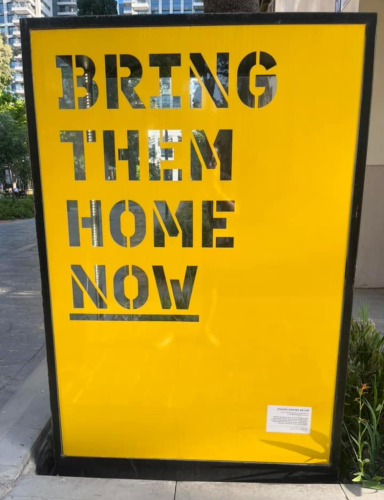
Our Chief Executive, Marc Levy had the privilege of joining young leaders from across the UK on a UJIA Leadership Delegation to Israel. You are immediately reminded that Israel is a nation at war upon arrival at Ben Gurion Airport with posters of the hostages still being kept in the most brutal and appalling conditions following their kidnap on the 7th October.
Our first visit as a group was to Hostage Square. Given the pain and trauma being experienced by the families of those being held in Gaza, the square is calm, dignified and the exhibits carry tremendous emotional and symbolic meaning.
The following morning, our first stop was to Leket where we volunteered picking fresh vegetables to be distributed to families who are vulnerable and in need across Israel. We then travelled to the site of the Nova Music Festival Massacre. This is something you will never forget as you walk through the poignant memorials to those young people murdered enjoying the prime of their lives. We heard the horrifying detail from a Zaka volunteer about what he encountered when arriving at the site to start the process of collecting bodies for burial. In total, there were 364 people who were murdered whilst simply attending a music festival. The onslaught and brutality directed at the Kibbutzim around Gaza has been well documented. With the exception of rockets fired by terrorists that had tragically become a regular occurrence, the residents lived idyllic and peaceful lives.
We visited Kibbutz Mefasim only a few kilometres from Gaza. Outside the Kibbutz gates, there was a massacre with anyone driving down the main road being attacked. Inside the Kibbutz, terrorists used RPG missiles to gain entry and attack residents. In total, around 15 terrorists managed to gain access. Miraculously and through the bravery of the civic defence team and off duty soldiers who were coincidentally at home for the holidays, none of the residents were killed. We had the opportunity to speak with young people from the Kibbutz who are understandably still grappling with what happened. They are now living far away from home in Hertzliya and are actively questioning what the future holds. Out of the 1,500 residents of the Kibbutz pre October 7th, only 150 have returned given you can continually hear fighting taking place nearby.
Afterwards we took the short journey to Sderot which is known for being the largest town closest to Gaza. Prior to the war, it had 27,000 residents and many have already returned. For decades, they have been repeatedly targeted by rockets fired by Hamas terrorists. Over the last 24 years, they have been subjected to thousands of missiles fired indiscriminately at civilians. This is a place where schools, playgrounds and bus stops need to be continually located next to bomb shelters.
We visited an animal therapy centre that has been designed to help young people deal with the trauma of continually being attacked and having to run for cover. This naturally has a huge impact on young people’s mental health and the centre undertakes invaluable work in ensuring young people are able to express their feelings.
Like Kibbutz Mefasim, there was a time on October 7th when Sderot was not under Israeli control. We visited the site of the police station which is one of the most well documented battles that took place. Terrorists took over the station murdering police officers and others in the building. In total, around 30 people lost their lives. With terrorists holed up inside, the building was destroyed by Israeli forces now leaving a gaping hole where the building once stood. The murals on the wall depict the battle and the bravery of those civilians, police and members of the army who fought.
The resilience, outlook and determination of everyone we met was truly unforgettable and inspiring.
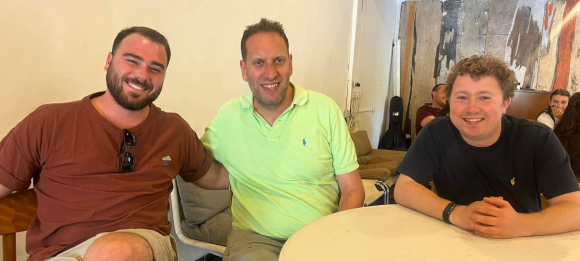
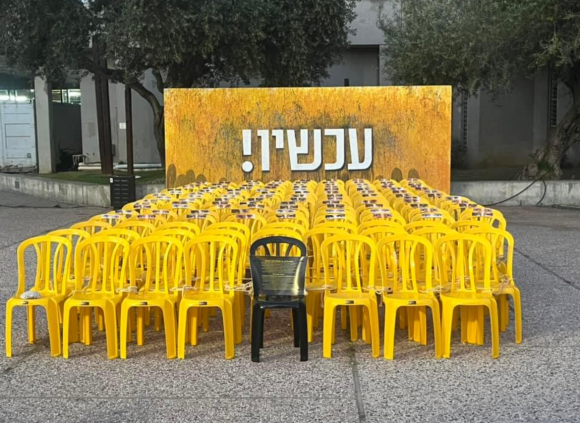
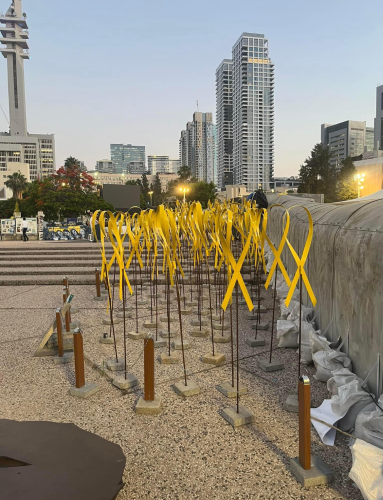
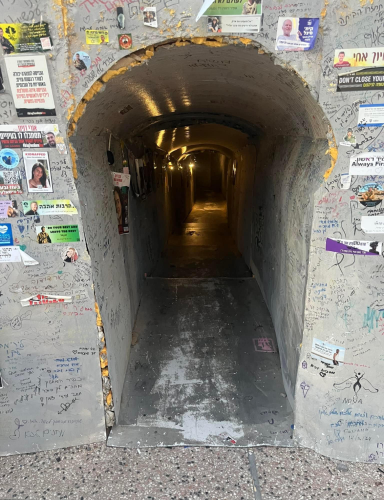
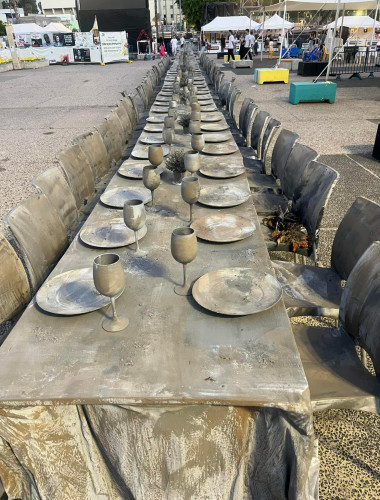
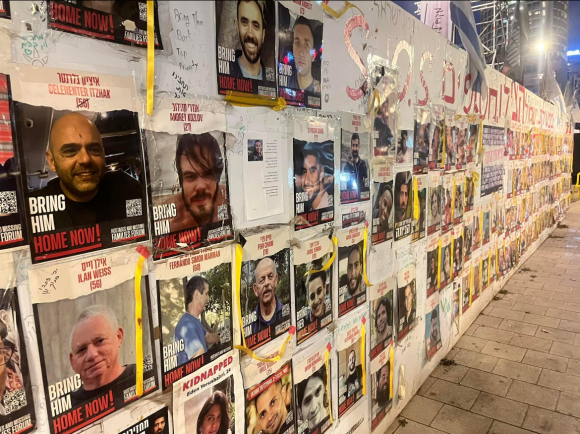
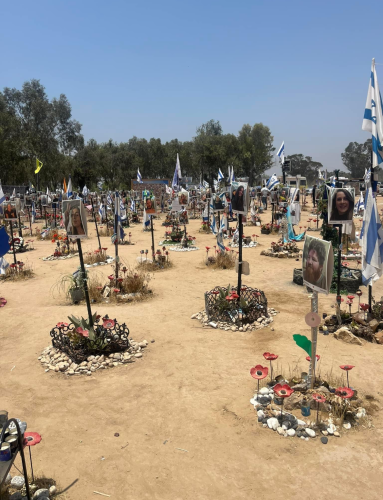
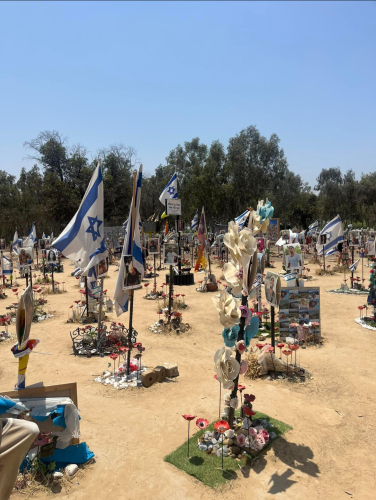 The trip concluded with time at the Western Wall. It is an extremely poignant landmark due to being the only remaining retaining wall of the Second Temple. Jews travel from around the world to pray and put notes in the wall. Particularly in the South of Israel, people we spoke with were extremely grateful that we had made the decision to travel and hear their stories. We encourage those who are able to make the trip as it is more important than ever that Israelis know that Jews in the Diaspora are thinking of them.
The trip concluded with time at the Western Wall. It is an extremely poignant landmark due to being the only remaining retaining wall of the Second Temple. Jews travel from around the world to pray and put notes in the wall. Particularly in the South of Israel, people we spoke with were extremely grateful that we had made the decision to travel and hear their stories. We encourage those who are able to make the trip as it is more important than ever that Israelis know that Jews in the Diaspora are thinking of them.
